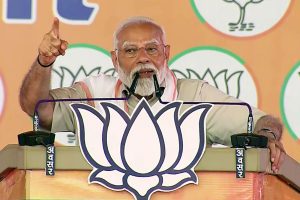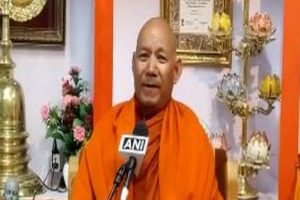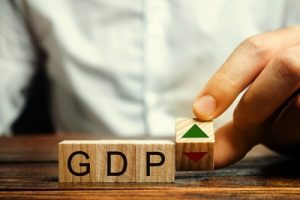The drug menace has been a key issue in Punjab for some years now and the spate of drug-related deaths recently has again brought the focus back on the problem for which there appears no foolproof solution.
Right from arresting small time drug peddlers and drug users to setting up de-addiction and rehabilitation centres (80 in government and 52 in private sector), everything has been tried but there appears no reduction in the p-roblem in the state known as the sword arm of India.
Having promised to break the backbone of the drug trade in the state within four weeks of coming to power, Chief Minister Amarinder Singh set up a Special Task Force (STF) to deal with the problem.
The STF focused on cutting the supply of drugs with state-wide arrests of about 15,000 drug peddlers and recoveries of huge quantities of drugs.
But this cutting the supply chain of drugs doesn’t appear to have helped much as the ‘demand’ for drugs remains the same. As the supply of drugs came down in the state following police action, addicts either started travelling to neighbouring states for the supply or shifted to the deadly impure form of drugs or new concoctions which are believed to have caused a spate of deaths (reportedly 25 in June) in the recent past. In some cases, the addicts died instantly while they had needles still hooked to their arms.
A worrying fact remains that most of addicts who get treated at de-addiction centres and rehabilitation centres are known to start using drugs again within days or months of getting out of such facilities as most of their ‘friends’ remain hooked to drugs and they can’t get out of the atmosphere where drug use is common due to various reasons, including unemployment.
As the spate of drug-related deaths due to overdose put the 16-month-old Amarinder Singh government in a spot, the state Cabinet recently recommended to the Centre to allow the death penalty for drug peddlers and smugglers, a move dubbed a “knee-jerk” reaction. The state government also announced mandatory dope tests for all government employees
Wary of a public backlash if it fails to tackle the menace ahead of the 2019 Lok Sabha polls, Amarinder has even urged Jathedar Sri Akal Takht Sahib Giani Gurbachan Singh to appeal to the Sikh community not to resort to drug abuse and to strictly follow the path shown by the great Sikh Gurus.
In a letter to Jathedar Singh, the CM said the Sri Akal Takht, the highest temporal seat of Sikhism, had always played a pro-active role whenever the state was faced with any sort of crisis from a religious perspective.
Pointing out that a sizeable chunk of the state’s population had been in the grip of drug abuse for the past many years, Amarinder said that several youngsters from Sikh families had also fallen prey to it.
The CM expressed concern over the gravity of the situation caused by drug abuse, which was contrary to Sikh tenets.
As there appears to be little possibility of the drug menace coming to an end any time soon, there have been calls for legalising the use of drugs like opium and marijuana to discourage the use of stronger and synthetic narcotics which are blamed for drug-related deaths in the state.
Suspended Aam Aadmi Party (AAP) member of Parliament from Patiala Dharamvira Gandhi has been a leading voice for this demand as he believes the problem started with the Narcotics, Drugs and Psychotropic Substances (NDPS) Act of 1985 which prescribes harsh punishment for possession and distribution of all categories of drugs.
“Soft drugs such as opium and bhuki (dried cannabis) had been commonly used in Punjab for centuries as recreational drugs. After the supply of these substances was restricted under the law, people moved to synthetic drugs like heroin or meth which are far more harmful but available through the drug mafia. The NDPS Act has failed and the only solution to the problem is for the government to start regulated supply of soft drugs to addicts,” he said.
Gandhi is seeking amendment in the NDPS Act and wants addicts to be treated as patients not criminals. He believes changes in the law should be made to make a clear distinction between soft drugs and hard drugs, establishing a supply chain of soft drugs regulated by government agencies to wean away addicts from cosmetic or damaging drugs and allowing citizens to grow specified quantities of soft or recreational drugs.
Gandhi believes if that is done, it will demolish the nexus of politicians, police and peddlers as lots of police, jail and judicial resources are consumed in catching and punishing petty users. While off the record Gandhi finds support in the medical fraternity and even political circles, most hesitate to openly support his contention to legalise ‘soft drugs’.
Meanwhile the government continues to hope for an awakening in the people over the issue. In some villages, residents recently nabbed peddlers, smugglers, addicts and handed them over to police, so the government believes such an awakening in the people would bring about success in ending the drug menace.











